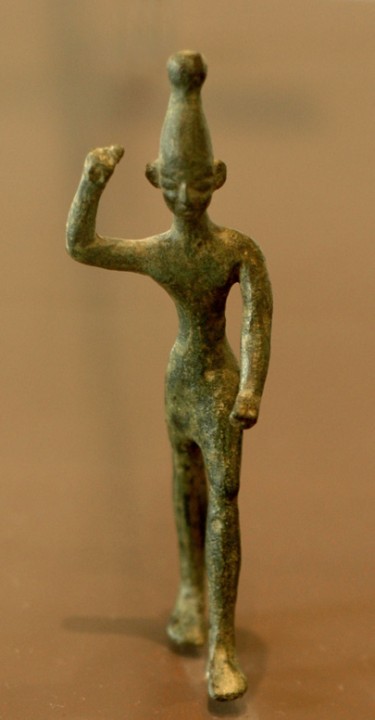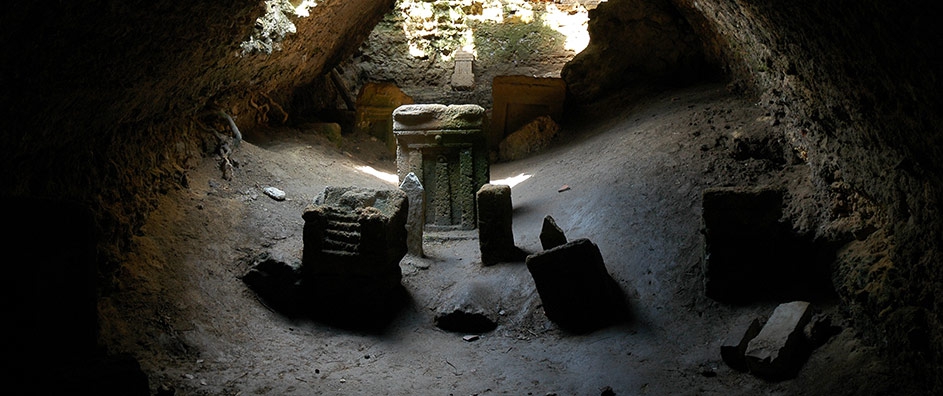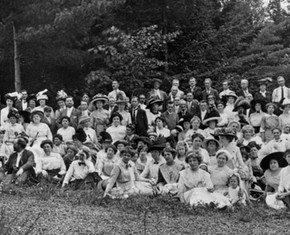The views expressed in our content reflect individual perspectives and do not represent the authoritative views of the Baha'i Faith.
Even though the religion of Baal practiced unredeemed polytheism, it’s possible to detect a gleam of something infinite hidden amid the muddle of physical idols and limited spirits: the great god El.
A god greater than any of the other gods had already been worshipped for a thousand years or more before Abraham was born. The name of the highest god varied from culture to culture, but the concept remained the same—akin to the way that different countries today speak of gott, dios, Allah, Jehovah, or dieu.
Those speaking Semitic languages knew him as El, but the Sumerians of lower Mesopotamia had revered him as An, the sky-god of heaven. Akkadians and Assyrians, who also lived in Mesopotamia, referred to him as Anu. Early Egyptians called him Horus, but later dynasties named him Ptah, Atum, or Ra.
In every culture the role of El was the same. He was the father, the progenitor of all the other gods in that particular pantheon. Like the sun in the sky, El ruled in the heavens rather than on the flat earth, and he made the mountains glow at dawn. The people of Canaan worshipped El under the name of Thoru-el, the “Bull god,” revering him as the creator of the lesser gods like Baal, Mot, and Anat. From a Baha’i perspective, this is understandable because:
…the measure of divine revelation, in every age, has been adapted to, and commensurate with, the degree of social progress achieved in that age by a constantly evolving humanity. – Shoghi Effendi, The Promised Day is Come, p. 118.

With the population’s relative lack of education in mind, one can conclude that El/Anu/An/Thoru-el was not just any old god. People saw him as the highest god in the universe, no matter the name and no matter how poorly they understood him. Spiritually speaking, this understanding of the highest god became the precursor of the one divinity most of us worship today as God, Gott, Dios, Allah, Dieu, Θεός, Deus, Dio, бог, the All-Forgiving, the Lord of Lords.
With the revelations of Abraham, Moses, and Jesus, names given to the highest god continued to evolve, and a variety of versions are sprinkled throughout the Old and the New Testaments, though these differences are not usually reflected in Standard English translations of the Bible. Elohim, Elyon, El Ro’i and El Shaddai are four names for God that seem most closely related to the great god El. Enoch, for example “walked with elohim.” Abraham’s concubine, Hagar, spoke with El Ro’i, Jacob saw El Shaddai in the land of Canaan, and Melchizedek was a Priest of El Elyon. El was also used in combination with another word or two as a way to more clearly express a growing appreciation for all of the different aspects of god, as in Elohim-Yahweh, Elohim-Yahweh-Adonai, and ElohimAdonai. The Greeks would eventually adopt El under the name of Zeus, and the Romans would accept him as Jupiter. In Arabia, the name would begin as El-Ilah and then morph into Allah.
No one can say how many different words Jesus used for God, but he is thought to have been fluent in both Hebrew and Aramaic and to have spoken at least a little Greek. He would have learned Hebrew at home in order to read Jewish scripture, but Aramaic was the primary language of Canaan during his life, and Greek was employed by traders and travelers as a common language throughout the Mediterranean world. Elah was the most common word for God in Aramaic, while Theos and Kyrios were Greek equivalents.
Confused? Don’t be. Biblical historian Carl Henry allays the fears that people sometimes have about mixing older names for God with newer names by explaining that:
…in successive periods of redemptive history earlier names of God are retained side by side with later names. Later divine disclosure does not annul the force and significance of the earlier names, for God does not deny himself in the progressive revelation of his names. He can be properly addressed by the earlier or later names. – God, Revelation and Authority, pp. 182-183.
Abraham’s task as a messenger of God was not to reject or displace El or An or Thoru-el with a new god. It was, rather, to enlarge mankind’s spiritual understanding of the infinite Godhead. Polytheism might have been an acceptable way of visualizing spiritual mysteries at previous stages of mankind’s existence, but it was time for a change. Abraham’s revelation would enable the world to begin the process of relinquishing its attachment to demigods by introducing the concept of a single God whose immensity could not, and should not, be represented by a carved or painted image.
Among those who accepted the new understanding about the nature of El/God/Yahweh was Abraham’s great-grandson, Joseph. Joseph and his large family became the nucleus of a group of people (usually referred to as Hebrews) who moved to Egypt and remained there for more than four centuries—until the advent of Moses. Through their continuing allegiance to the teachings of Abraham, the Hebrews managed to do something very special; they retained their beliefs, their one transcendent God, and their separate religious identity—generation after generation—even though they were surrounded by a completely different culture laden with lots of extremely glamorous gods. Their beliefs eventually faltered and had to be rejuvenated by Moses, who sternly reminded them that “You shall have no other gods before Me,” and “You shall not make for yourself an idol.”
Nevertheless, the Hebrews achieved something memorable in remembering Abraham and retaining at least a slight grip on monotheism in the face of seductive Egyptian polytheism. The Persians, after the revelation of Zoroaster in 650 BC, also embraced the concept of one God, but there were still hundreds of places on Earth where multiplicity rather than singleness ruled.
When the followers of Jesus began taking his message to the wider world, they often found it necessary to explain, as Paul of Tarsus did, that “handmade gods aren’t gods at all.” Six hundred years after Jesus, Muhammad, too, confronted a great number of people—including members of his own tribe—who wanted to close their eyes to the message of intangible oneness and cling, instead, to the comfort of familiar idols.
Abraham’s mission–ushering a new, unified monotheistic belief system into an idolatrous age–would ultimately require persistence and ingenuity as well as personal sacrifice.
















Comments
Sign in or create an account
Continue with Googleor